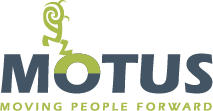Scene: It’s 3:45 p.m. on a Wednesday, but it really feels like 5:30 p.m. on a Friday. You have been working tirelessly all month to meet deadlines, promptly respond to emails, and satisfy last-minute requests from your boss. Your sleep cycle fluctuates, but you try for at least 6.5 hours each night and eat a semi-balanced diet throughout the work week. You fill up your Hydro Flask regularly and even went to the gym TWICE last week, which is an incredible feat (all things considered). So, why does your brain feel like someone scrambled it up with a whisk and you’re desperately daydreaming of a mid-day nap session?
Let’s collectively brainstorm for a few moments: How many consecutive hours are you working before taking your 15-minute break? Are you allowing yourself two (legal) 15-minute breaks per day? Do you hop on your laptop one last time before lights are out at 11 p.m. to check to see if Jason from HR responded to your email thread? Speaking of bedtimes, are you exposing your eyes to blue light screens right before you hit the hay? Can any of the items mentioned above be implemented, considered, or modified?
Let me break it down for you a little bit and spice things up with some science! Blue light, for example, ironically has a dark side. Research has found that exposure to blue light suppresses the production of melatonin more than any type of light. Melatonin helps us slip into that deep rapid eye movement (REM) sleep, people! According to Harvard Medical School, “While light of any kind can suppress the secretion of melatonin, blue light at night does so more powerfully.” It is advised that you avoid playing games on your phone or catching up on Lady Gaga’s latest Instagram post at least two to three hours before bedtime.
Avoiding late night blue light also includes leaving those emails for the morning when you’re back in the office. As technology continues increasing in speed, it is easy to fall into the habit of answering every inquiry and tackling every project the second it appears. However, ongoing meta-analytic research shows that workaholism over time has a consistently negative impact not only on job stress and satisfaction, but also on a person’s physical, emotional, and mental health. Is the person on the receiving end of that email really going to be livid if you hold off for 20 additional minutes, or send them a quick “Off to lunch!” memo? On the contrary, they’d likely be happy to hear that you have a legitimate life outside of your daily grind.
Let’s talk strategy. You’re drinking your fruit-infused water, participating in occasional yoga classes, and trying your absolute darndest to eat well. But, week after week, those same feelings of burnout and fatigue come creeping back in like a bad habit you can’t quite kick. What can you do? How, rather, can you execute all of the daily life demands without slipping and falling off of the edge into oblivion?
Here are some helpful tips to ease some stress:
- Turn your Pandora radio on quietly in the background or plug in your headphones if you can. Alternatively, listen to music on your break(s).
- Walk away from your desk and take your eyes off of your laptop and tablet (& smartphone) regularly. If you don’t work in an office environment, step away from your workspace for a few minutes to just do nothing.
- Maximize your lunch breaks! Take a quick walk and get some fresh air, plug in a podcast, or even have a conversation with your favorite coworker about their latest Netflix obsession.
- Maintain a comfortable workspace featuring pictures of important people, fun places, or other random things that make you happy! Another idea is bringing plants to your desk – they bring life and color and are easy to maintain.
- Reward yourself with small successes. Did you tackle four things off your to-do list? Go grab a coffee to celebrate!
- Eat regularly (no skipping). We all know what hangry looks like… it isn’t pretty.
- If you work in an office environment, ask your boss about a standing desk. Alternating between standing and sitting keeps our brains and bodies active throughout the day.
- Say no to over-committing yourself. When we keep saying yes, we no longer have time to do the things we want and/or need to do.
- Find your place to “vent” and practice self-reflection.
- Finally, identify your top priorities for the day and cut out the rest! If you finish early and have time for other tasks, you get a gold star!
Remember, do what works for YOU. If taking a walk doesn’t re-focus your spirit the way it does for your co-worker, don’t force yourself to do it. Maybe reading a chapter in a mystery-thriller is more your jam. The most important thing is finding your own balance and doing your best to recharge every day.






